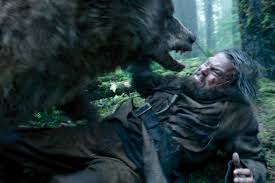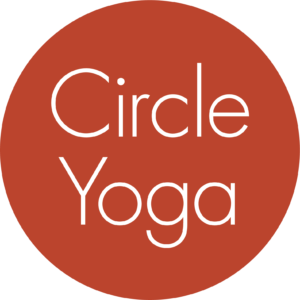April 2016
Dear Friends,
My friend Daniel came back from the movie The Revenant and announced, “This is the story of my life.” If, like me, you haven’t seen the movie, here is the IMDb synopsis:
A frontiersman on a fur trading expedition in the 1820s fights for survival after being mauled by a bear and left for dead by members of his own hunting team.

From The Revenant, 2015 (Kimberly French / Twentieth Century Fox)
So how, exactly, is this his life? After further probing, Daniel explained that he experiences his life as one man in a constant struggle to survive and he will do whatever it takes to overcome adversity, whether being mauled by a bear or writing a kick-ass legal brief.
I found this really interesting, especially after reading an article in WIRED about Susie McKinnon, a woman who has almost no autobiographical memory. She has bits and pieces of memories, but none of it first person, this-happened-to-me memories. Though she lives an otherwise typical life, she isn’t able to create personal narratives. She can’t remember her life from the point of view of “I”, so she has no central story around which her life revolves.
Those of us with personal memories intact live more like Daniel than Susie. Based on our first person memories, we generate a film in which we are the central character with a plot based on past experiences. Our stories then influence — maybe even co-create — our future. Because Daniel believes himself to be in an endless struggle against a violent, cruel world, his life is filled with many battles. If you see yourself more as Wile E. Coyote in Roadrunner cartoons, you will more likely find yourself feeling outsmarted again and again. Susie, however, has no “I” stories from which to create a narrative, so her life is lived one frame at a time.
Many of our stories come out of moments of crisis or challenge, and some may have even been passed down from previous generations. They are rarely examined in any deep way. I recently wrote a book about my life describing the way that mindfulness practice helped me navigate through an eating disordered life. As I wrote the book, I realized how my personal memories, the kind that Susie doesn’t have, were the main cause of my continued unhappiness. Without my memories tied together into a story, reminding me that I had been “wronged” or that I had was “wrong”, I might not have continued to be unhappy. And I certainly wouldn’t have been able to write such a book.
Buddhist philosopher Alan Watts writes in The Book On the Taboo Against Knowing Who You Are, “Although memory records are much more fluid and elusive than photographic film or magnetic tape, the accumulation of memories is an essential part of the ego-sensation. It gives the impression of oneself, the officer, as something that remains while life goes by — as if the conscious self were a stable mirror reflecting a passing procession. This further exaggerates the feeling of separateness, of oneself changing at a pace so much slower than outside events and inside thoughts that you seem to stand aside from them as an independent observer.”
As human beings we are storytellers. We like to find metaphors that easily describe our lives and motivate us to get out of bed each morning. It might be an interesting exercise to examine our stories and the effect they have on our lives and the lives of those closest to us. Is the overall story one that leads to creating enemies out of potential friends? Where do our loved ones fit into the story? Though we might recognize our story is a metaphor for reality, we may still be acting the story out in our daily life. Observe what happens when you believe your story to be true — is this the life you want?
BUT I’M REALLY INTO THE MOMENT. I HAVE TO BE. WHEN THOSE CAMERAS FIRST CAME OUT WHERE YOU COULD TAKE VIDEO ON THEM, I TOOK ONE ON A CRUISE — AND I HATED IT. THERE WAS THAT CAMERA BETWEEN ME AND ACTUALLY EXPERIENCING LIFE. I’M TEMPTED ALL THE TIME TO DO THAT — TO TAKE NOTES AND PHOTOS — BUT I MADE A DECISION EARLY ON NOT TO, AND DECIDED INSTEAD TO SAVOR THE MOMENTS AS THEY WERE HAPPENING. — SUSIE MCKINNON, NEW YORK MAGAZINE
The Buddha told a very simple parable about a walking alone at night and seeing what we believe is a snake and becoming afraid. But upon closer inspection we see that it is only an old rope curled up on the road. In the moment of believing there is a snake in front of us, we experience the very real emotion of fear and we may act on that fear by screaming, running, or hitting the “snake” with a stick. But when we realize that it is only a rope, we lose all of our fear. In this way, our stories direct our thoughts and our thoughts direct our actions. If we wake up to the fact that it’s only a story we are telling ourselves, our life may change dramatically.
The fact is, we aren’t living in a movie, and as Susie McKinnon’s life reminds us, we can live happily without making ourselves the hero, heroine, or victim of our own stories. A rope is just a rope, and our life is just what it is. Living without a script to follow may feel awkward at first, but it is also liberating. In each moment we can think and act freely, trusting ourselves to take the next authentic step, to say what needs to be said, and do what needs to be done.
with love,
annie.
